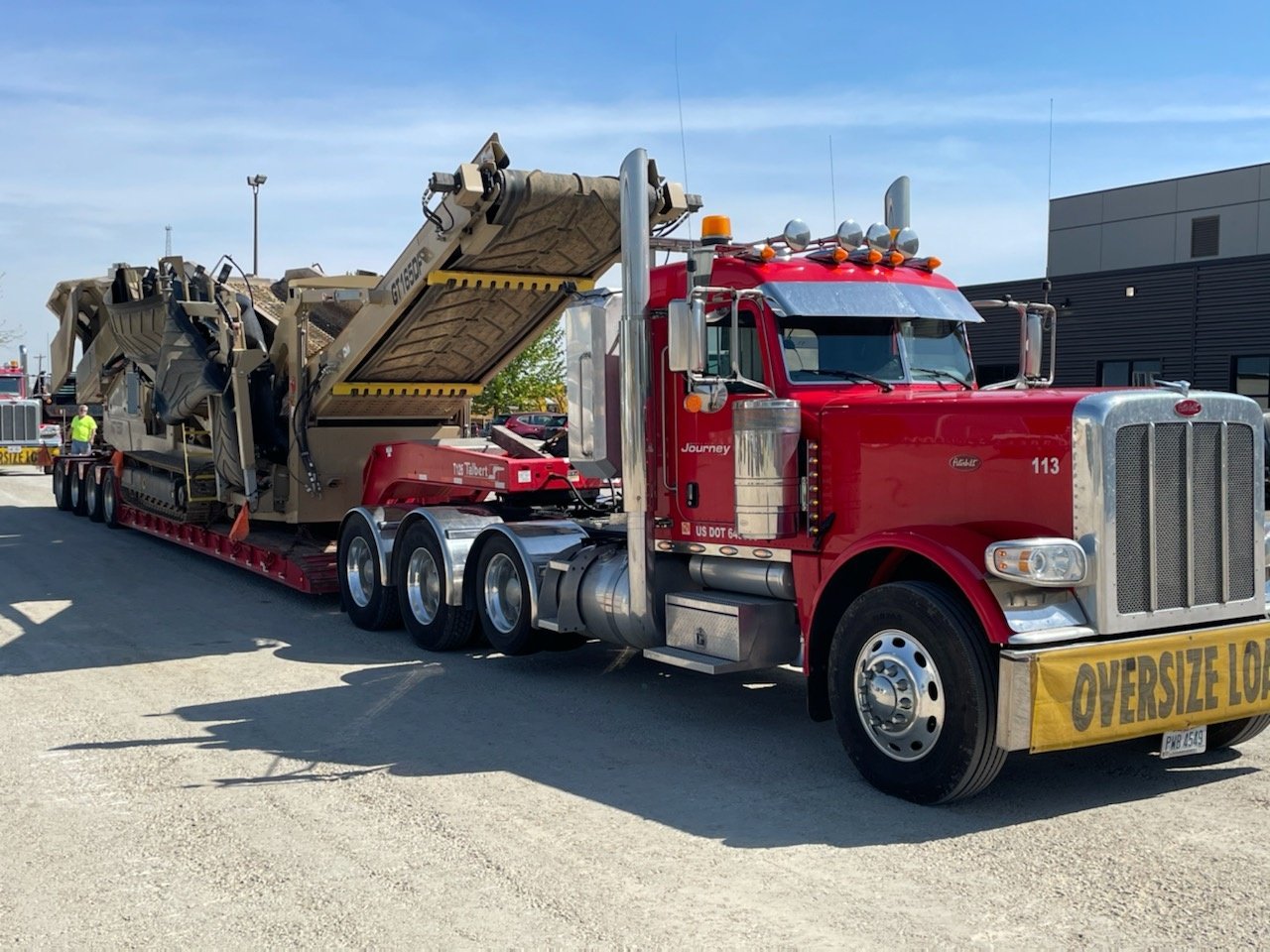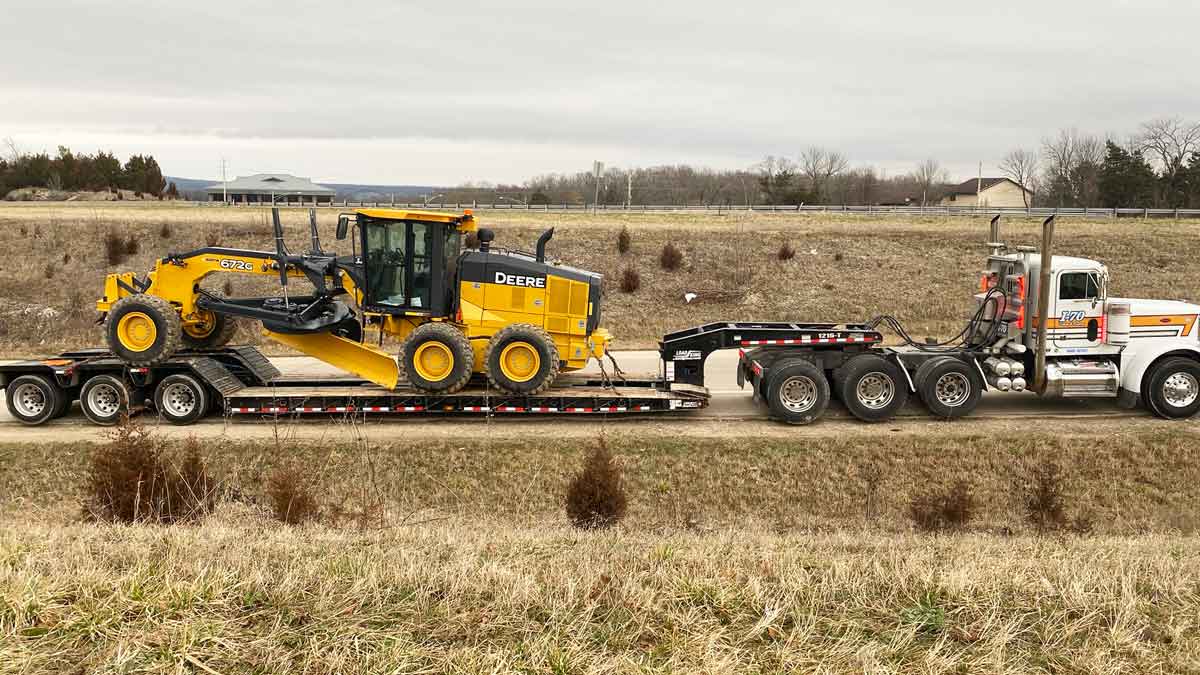In modern industries, moving oversized and overweight equipment requires more than conventional logistics solutions. Heavy hauling transportation has become an essential part of industrial operations, construction, and large-scale infrastructure projects. Companies like Big M Transportation specialize in providing safe, efficient, and reliable services tailored to the unique demands of heavy cargo. With the right expertise, these companies ensure that massive machinery and equipment reach their destinations without delays or accidents, supporting the smooth functioning of diverse sectors.
Understanding Heavy Hauling Transportation
Heavy hauling transportation refers to the movement of exceptionally large, heavy, or awkwardly shaped cargo that exceeds standard legal weight or size limits. This can include construction machinery, industrial equipment, wind turbine components, and other oversized materials. Unlike regular freight transport, heavy hauling requires specialized trailers, trucks, and handling techniques to maintain safety and stability during transit. Companies like Big M Transportation focus on integrating advanced equipment and expert planning to manage these logistical challenges efficiently.

Specialized Equipment for Heavy Loads
Transporting heavy or oversized cargo is not possible with standard trucks and trailers. Heavy hauling transportation relies on specialized equipment such as lowboy trailers, extendable flatbeds, multi-axle trailers, and modular transport systems. Each type of trailer is designed to distribute weight evenly and reduce stress on roads and bridges. Additionally, hydraulic lifting systems and reinforced securing mechanisms ensure that cargo remains stable, preventing potential damage during transit. The choice of equipment depends on the weight, dimensions, and fragility of the cargo.
Route Planning and Permitting
A key component of heavy hauling transportation is meticulous route planning. Oversized loads often require permits from local or state authorities, and transporters must navigate roads with height restrictions, weight limits, and traffic regulations. Route surveys are conducted to assess bridge capacities, overhead clearance, road width, and turning radius. Big M Transportation utilizes advanced mapping software and logistical expertise to chart routes that minimize obstacles and optimize safety. Proper planning reduces the risk of accidents and ensures timely delivery.
Safety and Compliance
Safety is a top priority in heavy hauling transportation. Oversized loads pose significant risks to drivers, other road users, and infrastructure if not handled correctly. Companies ensure compliance with federal, state, and local regulations, including weight limits, escort vehicle requirements, and driver certifications. Advanced tracking systems allow real-time monitoring of cargo, enabling quick responses to unexpected challenges. Safety training, risk assessment, and continuous monitoring are crucial to maintaining a secure transport process.
Economic and Industrial Importance
Heavy hauling transportation plays a vital role in supporting industrial growth and infrastructure development. Large-scale construction projects, power plants, manufacturing facilities, and mining operations rely on timely delivery of oversized machinery and equipment. Without specialized transport services, project timelines could be delayed, and equipment might face damage during handling. By facilitating the movement of essential heavy cargo, companies like Big M Transportation contribute significantly to economic efficiency and industrial productivity.
Environmental Considerations
Although heavy hauling involves large vehicles, companies are increasingly adopting strategies to minimize environmental impact. Optimized routing reduces fuel consumption and greenhouse gas emissions, while modern trailers and trucks are designed for improved energy efficiency. Some operators are exploring hybrid and low-emission powertrains for long-distance transport. By combining technology and environmentally conscious practices, heavy hauling transportation can meet industrial demands while contributing to sustainability goals.
Key Advantages of Heavy Hauling Transportation
-
Ensures safe delivery of oversized and heavy equipment
-
Reduces risks of damage during transit
-
Supports industrial projects and infrastructure development
-
Provides specialized handling and compliance expertise
Technological Advancements
Technology has transformed heavy hauling transportation in recent years. GPS tracking, route optimization software, and load sensors allow for precise management of cargo movement. Telemetry systems monitor vehicle performance and cargo stability in real time, enabling rapid adjustments if conditions change. Automation in logistics planning reduces human error, and advanced communication systems coordinate drivers, escort vehicles, and project managers. These innovations enhance safety, efficiency, and predictability in transporting heavy loads.
Future Trends in Heavy Hauling
The demand for heavy hauling transportation is expected to grow as infrastructure development and industrial expansion continue globally. Emerging technologies such as autonomous vehicles and AI-driven route planning could further revolutionize the field. Companies are likely to invest more in energy-efficient equipment and modular transport systems capable of handling increasingly complex cargo. The integration of data analytics and predictive maintenance will improve reliability and minimize disruptions in heavy hauling operations.

Conclusion
Heavy hauling transportation plays a crucial role in modern industry by enabling the safe and efficient movement of oversized and heavy cargo. Companies like Big M Transportation exemplify the expertise, technology, and planning required to meet these challenges. From specialized equipment and route planning to safety, compliance, and environmental considerations, heavy hauling ensures that critical industrial operations remain uninterrupted. By leveraging innovation and experience, this sector continues to support infrastructure growth, economic development, and industrial productivity on a large scale.
FAQs
What types of cargo require heavy hauling transportation?
Cargo that exceeds standard legal weight or size limits, including construction machinery, industrial equipment, wind turbine components, and oversized materials, typically requires heavy hauling transportation.
How do companies ensure safety during transport?
Safety is ensured through specialized equipment, adherence to regulations, driver training, risk assessment, real-time monitoring, and escort vehicles when necessary.
Why is route planning important in heavy hauling?
Route planning prevents obstacles such as low bridges, narrow roads, and weight-restricted areas. Proper planning ensures safe, timely delivery and compliance with local regulations.
What role does technology play in heavy hauling transportation?
Technology enhances tracking, route optimization, load monitoring, communication, and predictive maintenance, ensuring safety, efficiency, and reduced human error.
How does heavy hauling support industrial growth?
By enabling the transport of essential oversized equipment, heavy hauling ensures timely completion of infrastructure projects, manufacturing operations, and energy sector initiatives, contributing to overall economic development.














Comments (0)